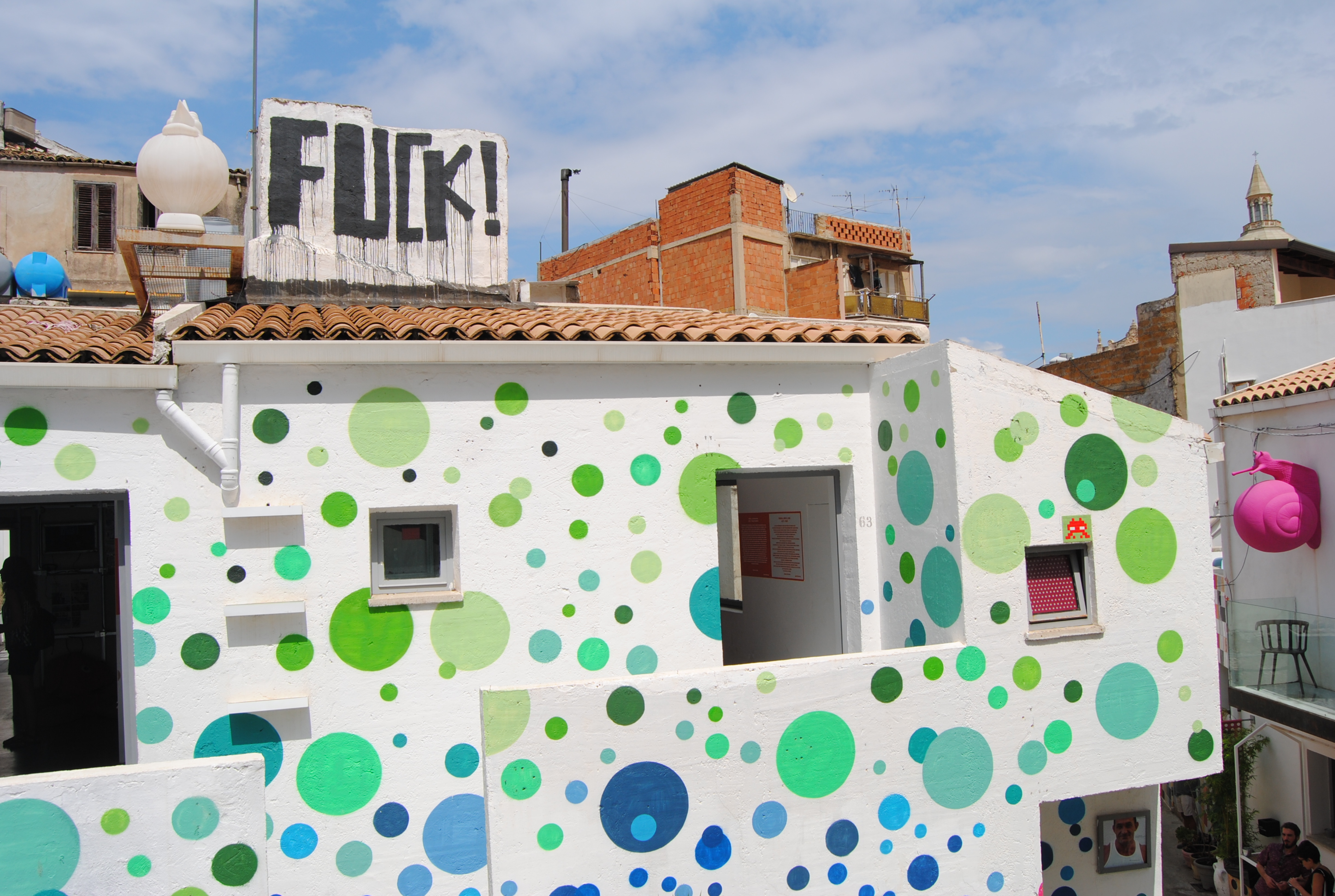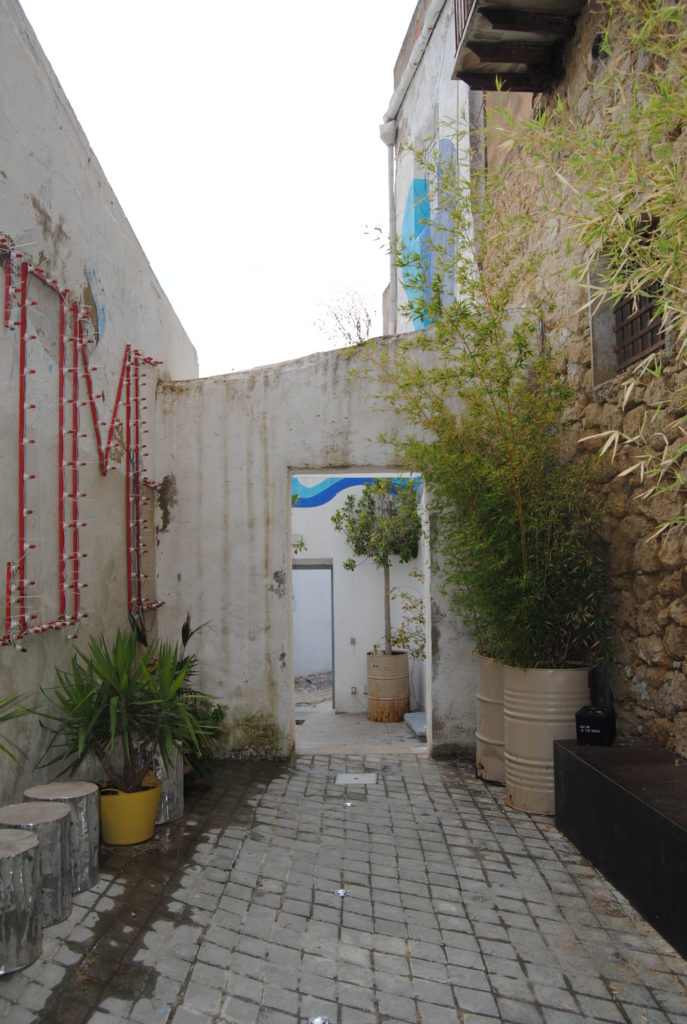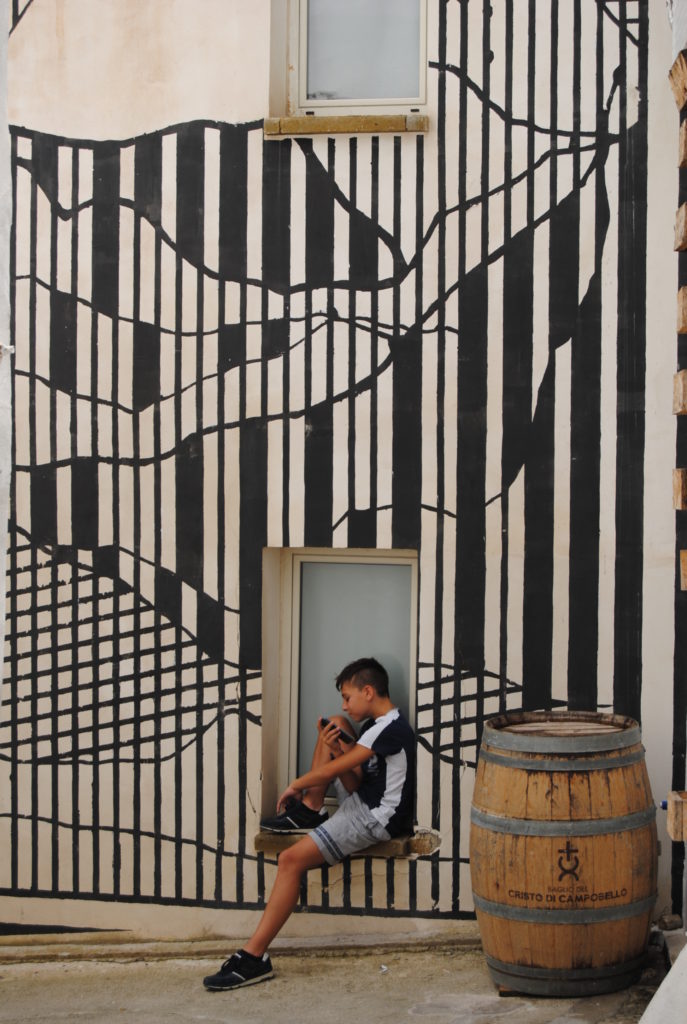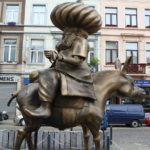A dreamer’s utopia: the small miracle of Favara Cultural Park
One of the most debated problems about Sicily is the constant and progressive depopulation of many small towns: with very few jobs and no social appeal they drive most of the younger generations away. In this scenario, which is the result of years of change, the historic centres become a mix of ruined old houses and newer buildings or, in the most extreme cases, faded ghost towns. This has been the case for Favara, a small centre near Agrigento. Since 2010, however, it has been experiencing a progressive and unstoppable metamorphosis that turned it into a destination for artists and tourists from all over the world.
The case of Farm Cultural Park, the first tourist and cultural park built in Sicily, moved many minds and gave hope to those who believe that investing in art and culture, taking care of their own land, make it possible to reverse a consolidated trend. During the Farm Film Festival, an international short film festival which occurs every summer at the Farm, we had the pleasure of meeting the notary Andrea Bartoli, who started this amazing reality together with his wife Florinda Saieva nine years ago.

CHOOSING TO STAY. Everything was born of a choice, many Sicilians have to make: leaving your country or staying? Andrea Bartoli and his family took a decisive resolution: «When you are forty, you realize that probably nobody will change your life and so you have to do on your own. Before Farm was born, we had thought to move to Paris and we were at the horns of a dilemma. Then we decided to move back home on one condition: to stop complaining and act without waiting for someone to change our life». Notary Bartoli’s view on the issue is more articulated than the standard: «The simplest solution seems leaving, but I think that suburban cities (normally considered a bit lackluster and unappealing) give you the chance to do something great. Citizens don’t only commit to do their job, but to improve the place they live too».
«The second utopia? Involving citizens to battle poverty and isolation»

COMMON DIFFICULTIES. Walking the small street of the seven courtyards in Favara, at the heart of the small revolution created by Farm, you experience a sense of “normality”: the merge of old and new has been so carefully implemented that one is lead to believe that the same could be possible anywhere. Once abandoned buildings now host pubs and B&Bs, clean courtyards flourish into gardens, and artists from all over the world come here to exhibit their works. The small miracle of Farm is really to impart the idea that, despite years of desertion and indifference, it is possible to make life better in the abandoned small towns too. However, there have been difficulties (and there still are) as the Mr. Bartoli explained: «The greatest challenge is to tear down people’s wall of suspicion, which still persists. However, these difficulties, financial ones especially, gave us the opportunity to have a gradual and measured growth. We worked so hard to steal 50 sqm from ruins and give them back to the community, that every time the joy we felt was as great as the effort. This led us to consider very cautiously the effects and the actions to put into place and to evaluate the results at every step».
MELTING POT. One question remains: can the Farm Cultural Park experiment really be exported? «I firmly believe that it can and should. ̶ answers Bartoli ̶ Of course, it is unthinkable to realize the same dynamics of Farm everywhere, because every place has its vocation, inclinations and history. One of our projects was Urban Farm, which had us look for Sicilian “ambassadors” that could start a path like ours in their territories. We are very proud that, during these years, several projects similar to ours have sprung all over Sicily: Periferica (Mazara del Vallo), Eclettica (Caltanissetta) and Trame di quartiere (Catania). In our land we need a great educational work and we try to do it like a drop in the ocean».

THE SECOND UTOPIA. Initially, notary Bartoli was called “the crazy notary”, because his challenge of turning a town like Favara into a well-known cultural and artistic centre seemed a utopia. Now, after the first step and the realization of the first utopia, the second utopia is possible: «Farm is successful not for what happened within its seven courtyards, but for what happened within the town. The second utopia concerns a more involved participation in problems like poverty and migration. Nowadays we need greater purposes to reach collectively, besides Farm. We are planning a device, called Società per azioni buone, by which to share economic resources and knowledge. We imagine that every citizen of Favara could own a part of a parking garage, a housing association or a children’s zone in ten years. The idea is to think “What we want this town to be like?”. Our cities are dying, young people leave and everybody complains, but we are not able to talk each other and design these cities again. Why don’t we trust in ourselves? Why invest anywhere but the place you inhabit? If we don’t do it, we are all crazy!».
Translated into English by Daniela Marsala



